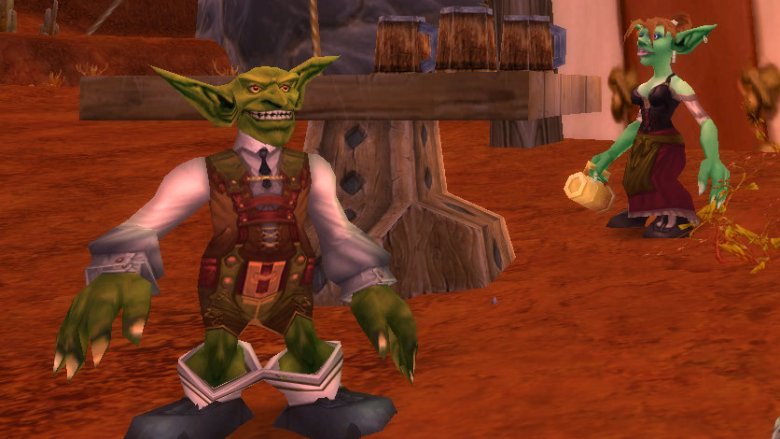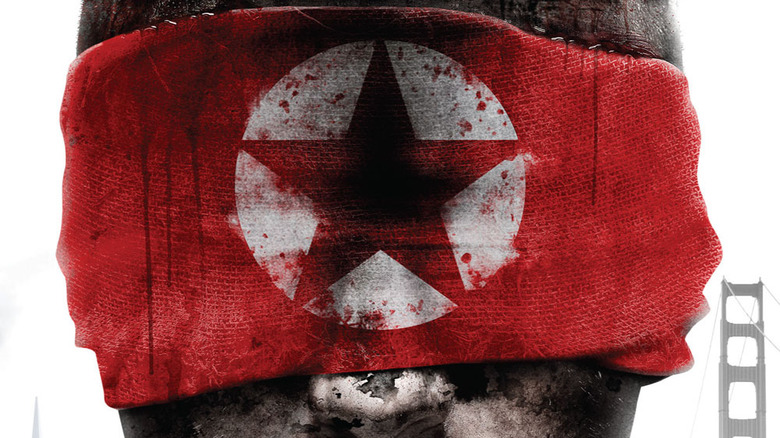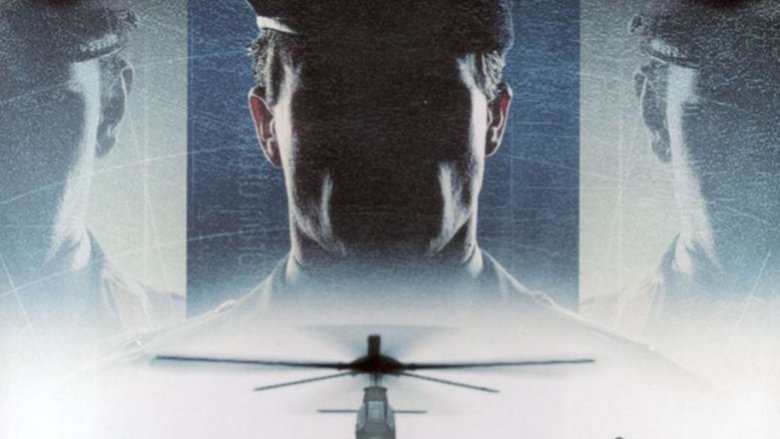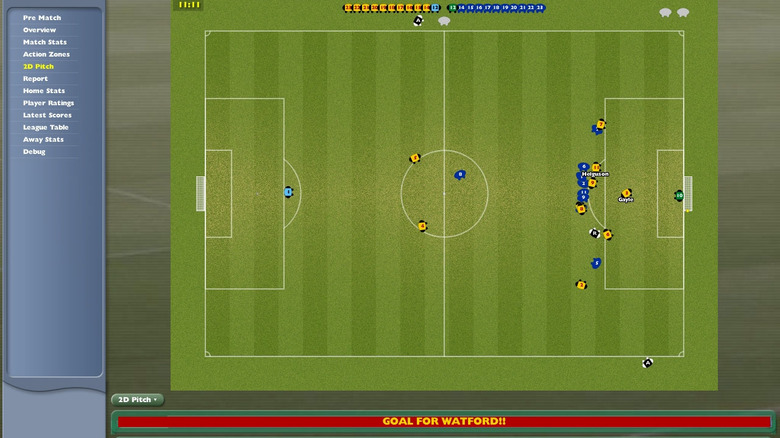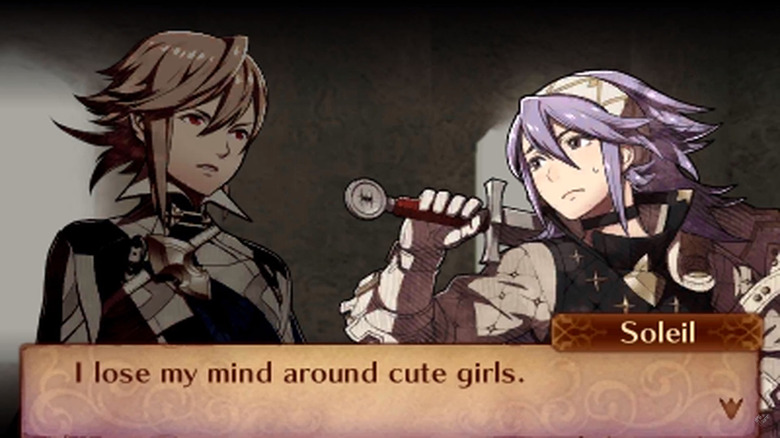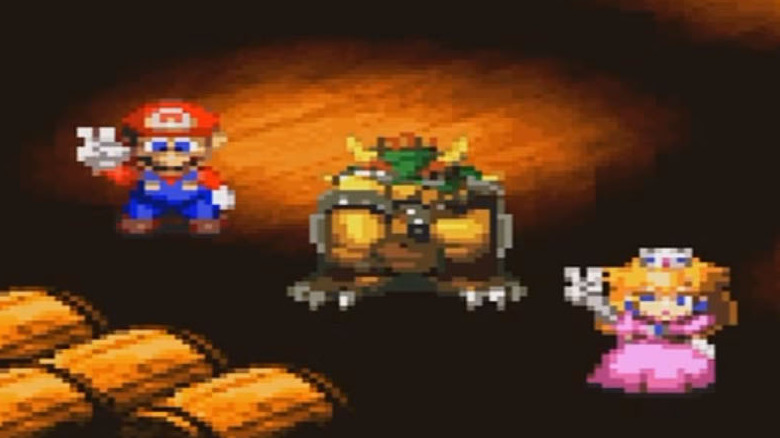Games That Were Forced To Change Internationally
Every country is different. And if you make video games, that can be a problem. A feature, character, level, or cutscene that's perfectly innocent at home could have dire implications abroad. If you want to sell your game in as many territories as possible, you might have to make a few changes. Such as...
Reconsidering Fallout 3's big bang
Fallout 3 is a massive game, but you don't have to venture very far into the radioactive wasteland that used to be Washington DC to find one of its most memorable quests. "The Power of the Atom" is Fallout 3 in a nutshell. In it, you make a very big choice: you can either diffuse the nuclear bomb sitting at the heart of the city of Megaton, saving its citizens...or you can accept a hefty bribe from a character named Mister Burke and detonate the device, wiping Megaton off the map completely.
In Japan, it's a different story. With the legacy of two actual nuclear bomb attacks still very much in the minds of Japanese citizens, Bethesda decided that nuking a settlement would've been in bad taste. The studio removed Mister Burke from the Japanese edition of the game, though you can still disarm the bomb and reap the appropriate awards.
That's not all. Bethesda also renamed the "Fat Man" weapon, which launches mini nuclear bombs. Fat Man is, of course, also the name of the bomb that American forces dropped on Nagasaki on August 9, 1945. Reportedly, Japanese Fallout fans weren't thrilled about the changes, but given the real-world history at play, it's hard to blame Bethesda. In this case, it's probably better to be sensitive than sorry.
What a difference a mustache makes
For obvious reasons, Germany has a pretty strict no-Nazi policy when it comes to pop culture. In certain cases, like when the media in question has an educational goal or is rooted in real-life history, some Nazi-related imagery is fine. But when it comes to most video games, Nazis aren't allowed. That means no swastikas, no one-handed salutes, and absolutely no Hitler.
Naturally, that's been a problem for the Wolfenstein franchise, which is all about Nazis. Call of Duty: World War II can get away with having a swastika in its main campaign, which takes place from the Allied forces' point-of-view, because it delves into real-life events. In multiplayer mode, meanwhile, it's censored. Wolfenstein: The New Colossus, however, is a straight-up science fiction story—at one point, its hero travels to an entirely different planet—and as a result doesn't get any such leeway.
And so, publisher Bethesda made some changes so that German fans could enjoy Wolfenstein: The New Colossus. Swastikas became ragged triangles. The bad guys' antisemitism is toned way, way down. Instead of Nazis, the oppressive government is called "the Regime." The biggest changes, however, were saved for Hitler himself. In Wolfenstein: The New Colossus, Adolf makes a brief appearance as an aging, paranoid madman. In the German edition of the game, he loses his title—characters refer to him as "kanzler," or "chancellor," instead of "fuhrer." Bethesda also deprives the dictator of his infamous mustache. The resulting character still looks an awful lot like Hitler, but the quick shave was apparently enough for German authorities, who let the game go on sale regardless.
A probe too far
South Park pushes boundaries–that's kind of its whole thing. In 2001, the show aired "It Hits the Fan," an episode with the sole focus of saying the S-word on television a record-setting number of times. When South Park: Bigger, Longer, & Uncut got an NC-17 rating from the MPAA, which would've kept it out of most theaters, series creators Trey Parker and Matt Stone responded by making one controversial scene "10 times worse and five times longer." The MPAA accepted the updated version and gave the movie a pass.
So it's not surprising that South Park: The Stick of Truth, the first South Park game to really capture the show's voice, is just as filthy as its source material. That's too filthy, as it turns out. While the United States got The Stick of Truth in all of its indelicate glory, minigames involving abortions and anal probes ended up being too depraved for international audiences. In Australia, the offending scenes were replaced with a picture of a crying koala. In Europe, a snide block of text informs players of what they're missing while Rodin's The Thinker facepalms in front of an EU flag, which you can see above.
Homefront's naughty neighbor to the north
Despite some close calls, a video game hasn't sparked an international incident—not yet, anyway. Spike, which publishes the Homefront series in Asia, would like to keep it that way. Homefront's marketing campaign, which played up the game's fictional conflict between a reunited Korea and the United States (in the game, America loses), took its fair share of knocks at home. For the Japanese release, Spike decided to play everything extra safe by eliminating references to Korea entirely.
After all, while the United States is over 6,000 miles from North Korea, Japan sits less than 650 miles southeast of the country. Not only does the Japanese video game ratings organization CERO have strict rules about trash-talking real people and countries, but it's also simply in Japan's best interest to keep its neighbors happy.
And so, Spike removed North Korea's former leader Kim Jong-il from the opening cinematic, and massaged the game's language to make the game more palatable. Instead of North Korea, the enemy is called "a certain country to the North." Kim Jong-un is called "Northern leader." Given that Homefront is set in America, this all makes the game sound like it's about a trigger-happy Canadian take-over–but that minor confusion is a small price to pay in order to avoid a third world war. We'll take it.
The right war at the wrong time
Sometimes, video games don't change because of different cultural norms. Occasionally, censorship is just a matter of timing. While Germany has a number of rigid rules for video games aside from its entirely justified Nazi-phobia, the real reason why Command & Conquer: Generals didn't sit well with German authorities has less to do with violence, and more to do with real-world politics. Command & Conquer: Generals launched in Europe to little controversy on February 14, 2003. On March 19, 2003, just over a month later, United States forces invaded Iraq, kicking off Operation Iraqi Freedom and the second Iraq war.
Germany put Command & Conquer: Generals onto "The List of Media Harmful to Young People," better known as the Index, shortly thereafter. That effectively banned anyone under 18 from buying it. The game's similarities to the situation in Iraq troubled authorities, while the ability to kill civilians made it seem like Command & Conquer was turning human suffering into entertainment. Instead of letting minors play a game that glorified war, Germany's government decided to ban the game entirely.
Instead of abandoning war-hungry German teenagers, Electronic Arts released a special version of the game called Command & Conquer: Generäle. It was basically the same game as Command & Conquer: Generals, but many of the rougher edges were sanded off. Instead of human soldiers, all of the combatants are expendable robots. Armies use acid instead of anthrax, likely to avoid comparisons to Saddam Hussein. Civilians were removed from the game entirely, and real-life place names were replaced with fictional countries. In hindsight, all of this looks like an overreaction, but at least German fans got to play the game—in China, it was completely banned.
A pitch-perfect controversy
Football Manager looks pretty innocuous. Graphically, there's nothing controversial—or even flashy. It's not even that exciting. Unlike FIFA or Pro Evolution Soccer, Football Manager doesn't put you in control of the players on the pitch. Instead, you take an administrative role. You'll trade for players, negotiate contracts, plan plays and on-field formations, hire and fire staff, and lay out training regimens. If you're into soccer—like, really, really into soccer—it's fun, but it's about three steps removed from Spreadsheets: The Game.
China banned it anyway. Most versions of Football Manager 2005 listed Tibet, Taiwan, and Hong Kong as separate countries. In China, however, that's a big no-no, since the government considers those territories part of China, and forbids anything, including video games, from depicting them as independent entities. Football Manager 2005 broke the rules, and so the government stepped in and threatened anyone who distributed the game, even illegally, with some hefty fines.
Sega responded by pointing out that Football Manager 2005 hadn't been localized for the Chinese audience yet, and that anyone who was playing the English version probably pirated the game. Soon, a China-friendly version of Football Manager 2005 was on the way—one that annexed the offending countries into China, at least digitally. In the real world, things remain infinitely more complicated.
Fire Emblem Fates is a hard pill to swallow
The Fire Emblem series is full of mentally taxing strategic battles. But the franchise also pays a lot of attention to its characters. Between battles, you can delve into Fire Emblem's barracks and forge new and interesting relationships with your soldiers. Pair two units together during battle, and they'll grow attached to one another. It's not just for show, either—characters in relationships get stat boosts when they're near one another, making them more effective in combat.
As you can imagine, sometimes Fire Emblem's characters take their friendships to the next level and start coupling up. In some cases, they'll even get married. Fire Emblem fates is reasonably progressive in this regard, too—same-sex couples are treated just like heterosexual ones—with one big exception.
In 2015's Fire Emblem Fates, the primary male character, Kamui, can drug Soleil, a badass mercenary and proudly open lesbian, with a magic pill that makes her see men as women. As a result, she can fall in love with and marry Kamui, settling happily into a long-term heterosexual relationship. That's...really not okay.
In America, where both date rape drugs and barbaric gay conversion treatments have a long, cruel history, that's not going to fly. Heroes shouldn't be slipping drugs, even magic ones, into people's drinks. They shouldn't be forcing people to change their sexuality, either–in real life, gay conversion therapy can cause irreparable psychological harm and doesn't actually work anyway. Nintendo clearly agrees. When Fire Emblem Fates came stateside, Nintendo listened to fans and cut the offending scene.
Nintendo gives fans the finger
Around the world, there are many different ways to say "Up yours!" In America, raising a middle finger gets the job done. In Iraq, Iran, and Afghanistan, flashing a thumbs up achieves the same effect. Flashing devil horns in Brazil, Colombia, and Italy is an eloquent way of calling someone else a cuckold. Make a peace or victory sign with the palm facing inward, and you're insulting everyone in Britain, Australia, and former Commonwealth countries.
And then there's the bras d'honneur, known colloquially as the Italian salute. Bend your arm 90 degrees and make a fist, then slap your bicep with your free hand. In Italy, Poland, and, thanks to immigration, America, as well as a number of other countries, that's just as bad as flipping the bird. The motion doesn't have the same connotations in Japan, however, which explains why the gesture appeared in both Mario Kart 8 and Super Mario RPG: Legend of the Silver Stars.
In both cases, characters execute the move while rejoicing after victories. While it's incredibly in-character for Bowser to insult the player every time that he wins one of Super Mario RPG's turn-based battles, Nintendo decided it's a little too rude for a company with a family-friendly image. The bras d'honneur was removed from both games before their western releases and replaced with more polite—and far less interesting—means of celebrating.
Warcraft's booze-tastic changes
Germany's Oktoberfest started in 1810 as a country-wide wedding bash, but these days, it's all about one thing: beer. From late September to early October, millions of people flock to Munich, Germany—or their nearest beer garden—to enjoy traditional Bavarian music, some food, and lots of fizzy amber lager. And we mean a lot. In 2013, Oktoberfest revelers drank over two million gallons of beer in Munich alone.
And yet, ironically, the citizens of Munich can't partake in Oktoberfest's virtual counterpart, at least not entirely. In September and October, roughly around the same time as the real Oktoberfest, World of Warcraft hosts Brewfest. During the event, players can pick up unique beers all around Azeroth, score some unique beer-themed gear, complete a number of limited-time quests, and ruin their pixelated livers by quaffing as much of the Alliance and Horde's finest malted beverages as possible.
But in Germany—and the rest of Europe—not every Brewfest quest is available. Specifically, the quests "Pink Elekks on Parade" and "Catch the Wild Wolpertinger!," which require you slay creatures that only appear when your character is drunk, were removed from World of Warcraft's European servers. Allegedly, the quests violate "regional game rating requirements" (i.e. a game that promotes alcohol-fueled violence probably shouldn't be marketed to teens). That's a shame for anyone in the affected regions, especially those who want to get the Brewfest-exclusive Wolpertinger pet, which is based on a creature from Bavarian folklore. Still, the quests' removal has one silver lining: with Europe out of the picture, there's more digital booze available for the rest of us.

